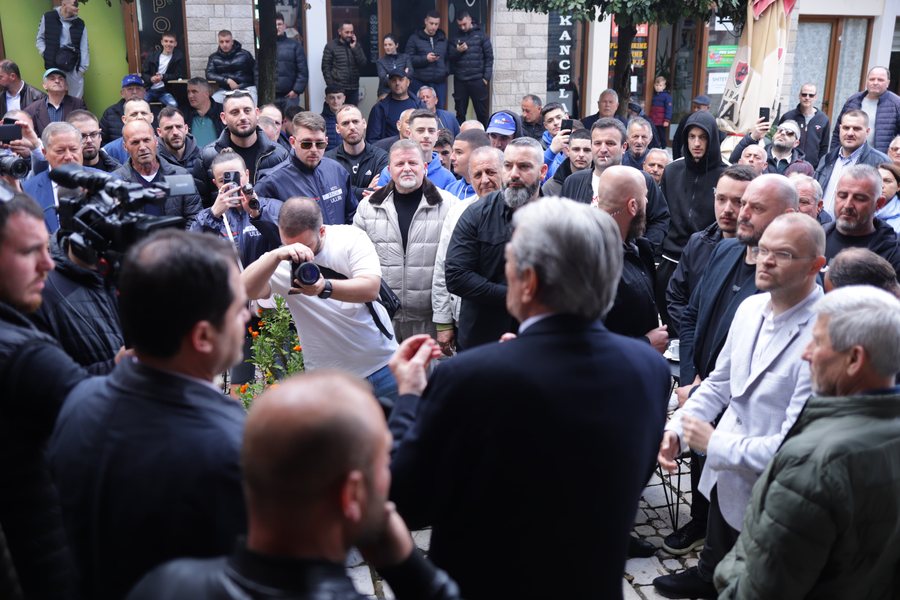
The leader of the Democratic Party, Sali Berisha, has stated that the government of Prime Minister Edi Rama has left Kruja without institutions, without water and without roads.
Berisha made the comments during a meeting with businesses at the Kruja Artisan Market, where he also presented points from the 'PD-ASHM' government program, writes A2 CNN.
Berisha also said during his speech to those present that Mayor Artur Bushi invests only for himself, according to him, stealing from the citizens of Kruja.
Excerpt from Berisha's speech:
We will provide some support, we will reduce the energy, we will reduce the energy from 18 to 6 lek.
We will halve the water.
We will put a limit on the municipality, it will not be able to impose taxes as it pleases, but never more than 1 percent of turnover.
We will do everything we can to promote domestic production as much as possible, but while creating the most business-friendly climate.
Whoever wants to see the most absolute concentration of power, let them come to Kruja.
The proud, immortal capital of the Albanian nation has been stripped of all institutions.
12 years, except for Bush investing for himself, zero investments except for concrete.
The road has remained as it was.
All institutions have been taken away from Kruja.
A path, promised and with a ready-made project, moves forward as if it will never end.
Kruja takes its name from the beautiful word krua, spring, and there is no water. He climbed up once, what should we call it, but he climbed up and brought back a glass of water there, but the water did not come to Kruja, what did come, came with problems and Kruja, among the waters and springs, suffers from water.
Likewise the farmers of Kruja, likewise the businessmen of Kruja.
We are for a big change.
First, we will start this change where the pain is, and the pain is with those who are currently paid 3 times less than they should be paid if the price increase were compared.
So, a pensioner in 2013, a year in which bread was 400-500 lek and today it is 900-1000 lek, a year in which tomatoes were 100 lek and today they are 400 lek. So, basic goods and foods were over 100 percent cheaper than today.
If we do the modeling, we will find that the pension that was 120 euros, should be a minimum of 390-400 euros today if the rule is that price increases are covered by increases in salaries and pensions.
But he remembered his own salaries, increased the salaries of senior officials, tripling or quadrupling them, while leaving low salaries and pensions with or without indexation, and in fact, both low salaries and pensions are inversely proportional to prices.
The prices here are the same as in Europe, as in Italy, I'm talking about the prices of food and basic goods.
Bread costs Albanians about 80 times more than Europeans. Why? Because it seems like a very high figure. But first, Albanians consume bread 4 times more than the European average. Second, Albanians have a salary 6 times lower than the European average. So, there are a series of factors that make bread a costly commodity, much more costly than it should be for Albanians.
And now these gentlemen, as a consolation, have coined the expression, "No one dies for bread in Albania." Now we have to be realistic, in Albania people have shared their food with each other, they have not left each other to die.
And to come out today to justify the impoverishment you have caused to others, at a time when his peer in Montenegro, who received less in 2013, now receives a pension of 450 euros, is doing nothing but justifying theft to the citizens.
The problem is not that people have to work to survive, the problem is that people have the basic necessities without hardship, without pain, without being forced to kick their children off the table.
So, there is a very irresponsible attitude towards citizens. (A2 Televizion)











